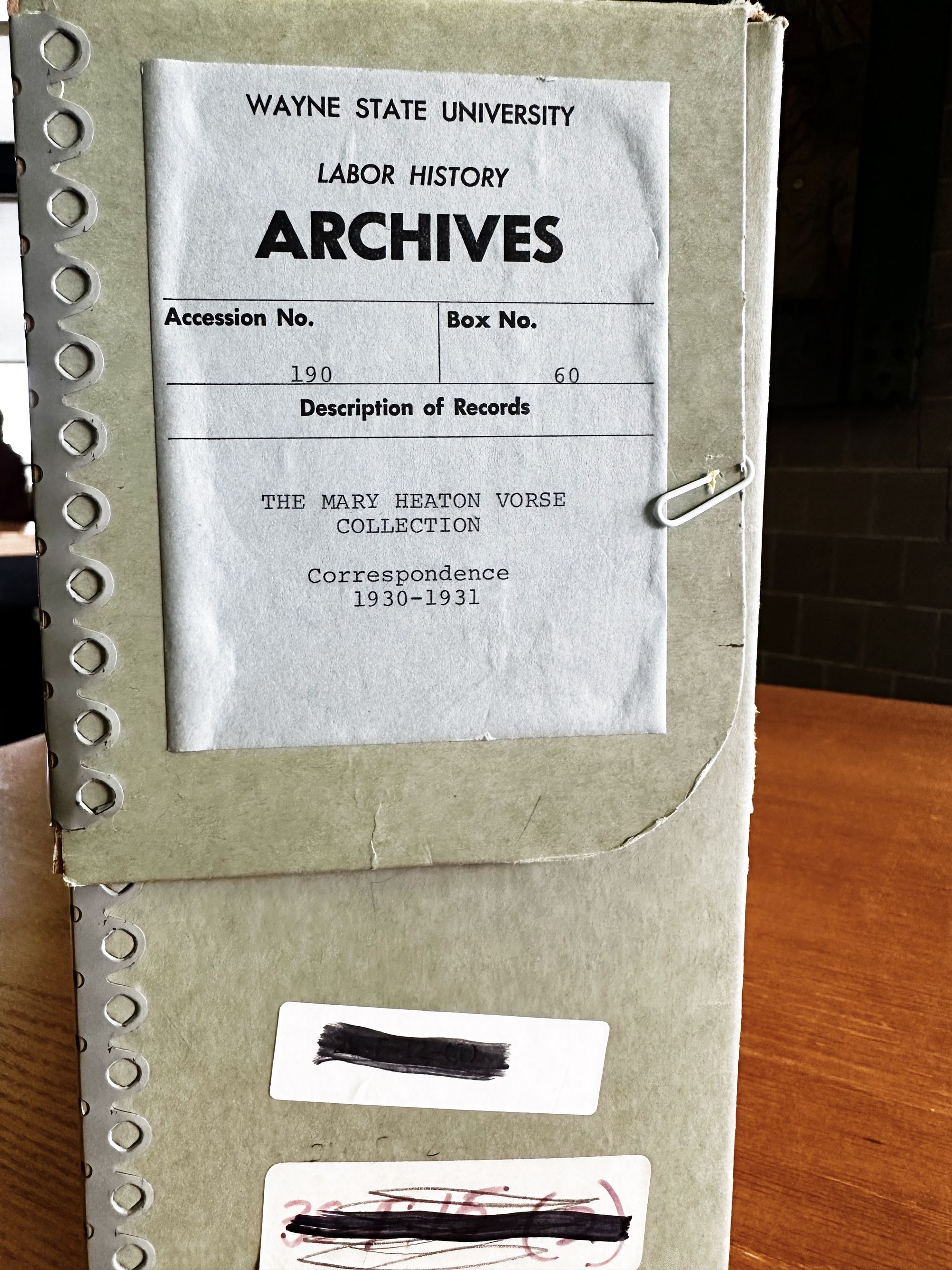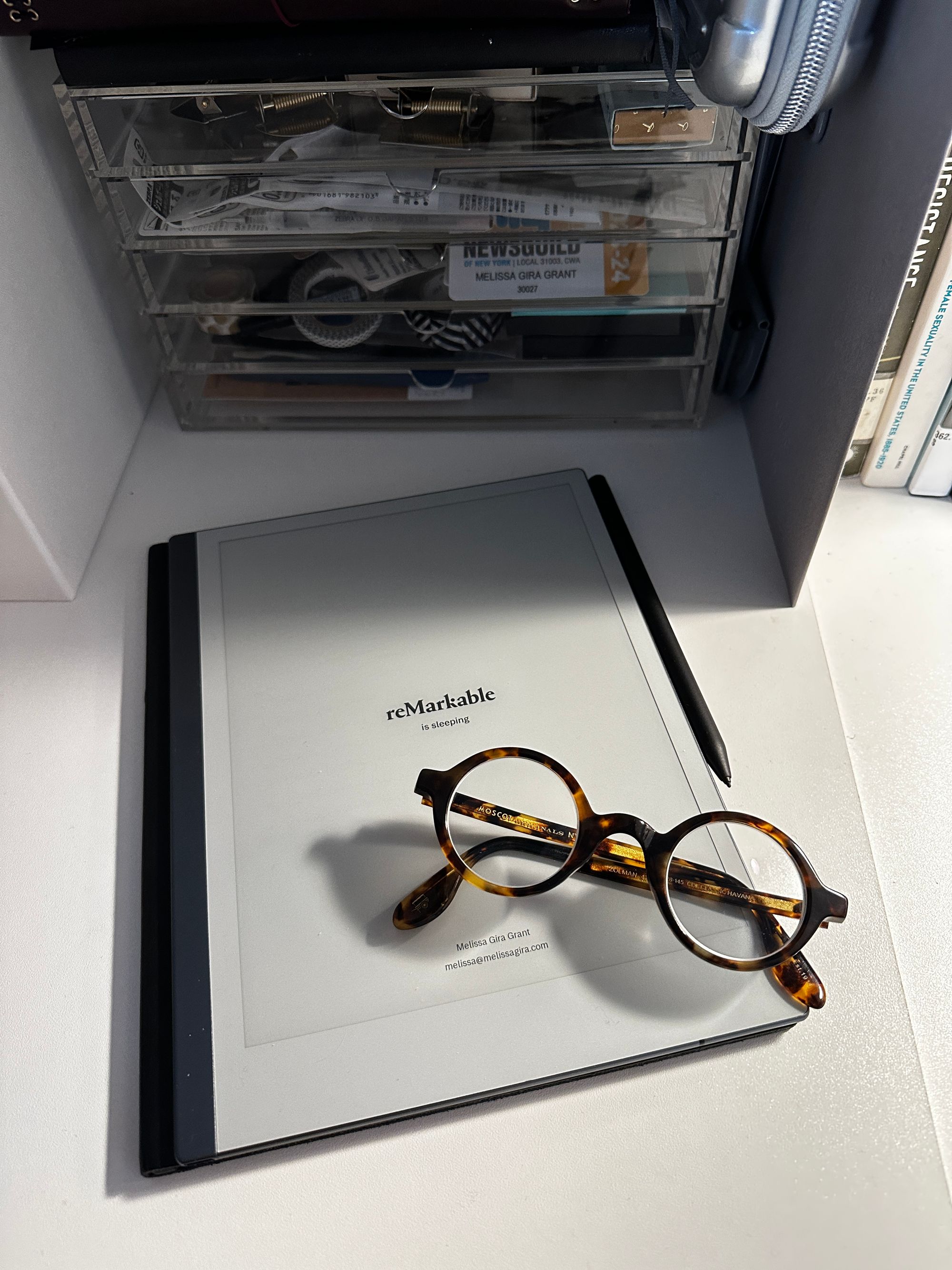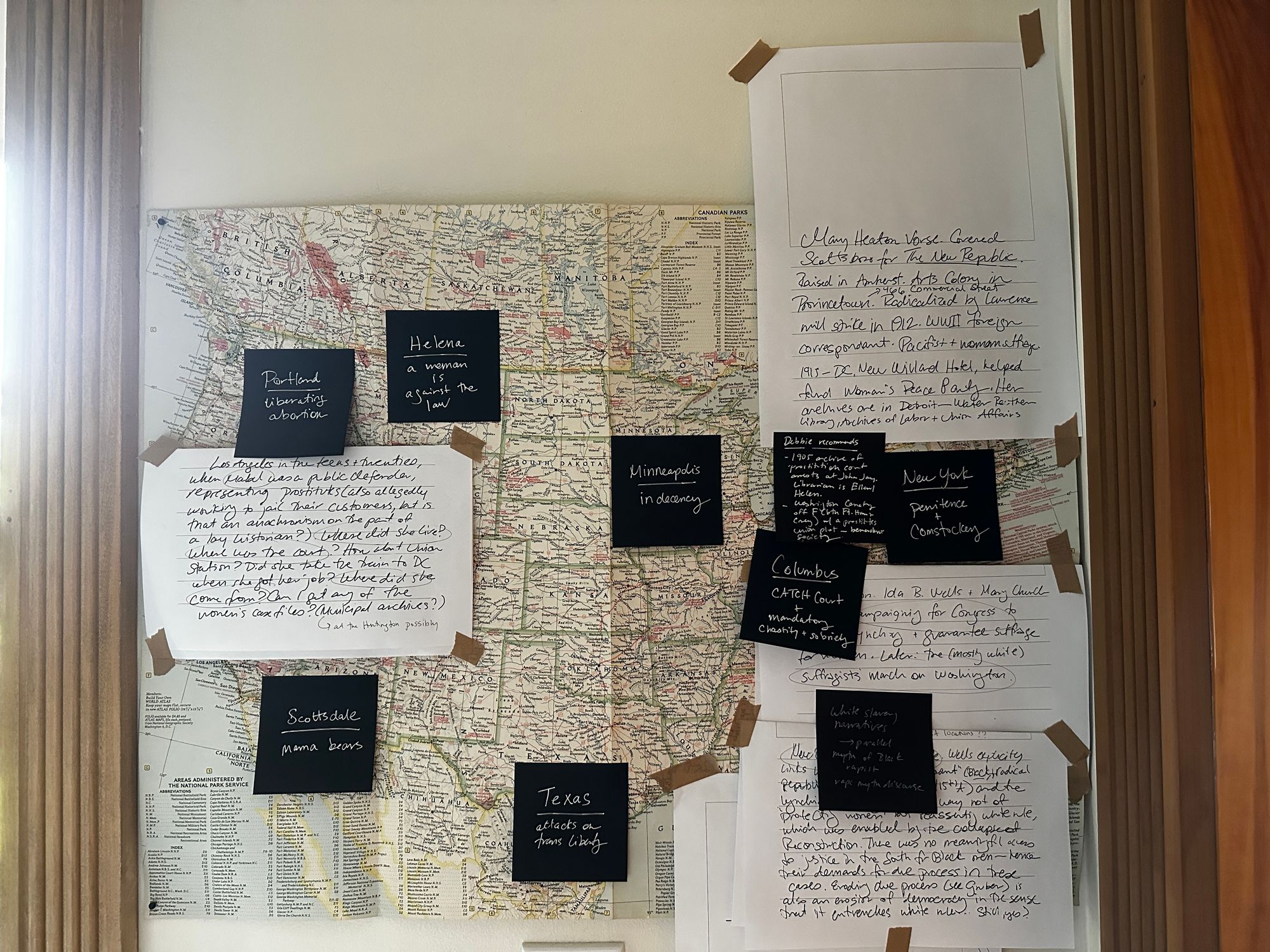Back to the beginning
It's been a wild, wild last few weeks re: the whole 303 Creative fake same-sex wedding website inquiry Supreme Court story. I had a lot to say on that subject over on Death Panel yesterday, where we also got into how fiction makes it to the Supreme Court, the power of narrative in the legal system, and why the stories we tell ourselves about the law are so enduring:
But now... back to the newsletter.
Writing books, how do you do it
Before I got too far in and forgot, I wanted to jot down a few things that were useful to me when I started really getting into the writing of my next book. There are links, it is not sponcon, I get nothing for sharing any of this.
Onward.
I have checked so many books out of the New York Public Library but few leave the building. Some of them are fragile and I keep them in a reading room. Which is also where they get delivered to my little shelf. It's indulgent and eventually I'll have to surrender my reading room key but for now it's the greatest thing.
In the archives, I have always been able to bring my phone to take quick reference-only shots of documents. If I remember, I make sure the folder title is visible under the document. And I take a photo of the title of the box before reading anything in it.

If it's an ebook or journal article, I try to read it on my ReMarkable tablet, where I can write on the document itself, highlighting and and making margin notes with the stylus. It's got a screen like the Kindle paperwhite, so it's easy on the eyes.
Given the peculiarities of long covid for me, I try to save my screentime for work that can't be done anywhere else. The tablet has saved me a little bit.
If I have to make a note on a physical book, I also write out as much of the passage as I can in a reading log with a citation, and if I end up using it, then I'll get it onto my computer. Every once in a while or if I'm stuck I flip through this log.
Stray thoughts get written down on a black post-it (which I keep throughout my apartment, and by now can also write on in the dark) and put on the wall until they have a home. The rule with these is, I don't have to know anything else about what these notes mean. It's just to capture. But since these inevitably are so short-handy they only make sense for a few weeks which usually prompts me to home them quickly.

If it's an ebook or journal article, the notes go into the file itself using my ReMarkable tablet. For the journal articles, I can export a copy as a PDF with my notes on it and get it on my computer.
In the archives, I use my tablet for taking notes and tracking what came from what box and what folder because I definitely did not do that the first time.
Again, I try not to do this in front of a screen.
I take my tablet somewhere else. It has a storyboard template, and I started using it when I have an idea for a kind of big set piece of a scene or arc and I don't really know much about it, other than that I can picture it and I can tell you how I am going to source character and color for it. I may not have any wtiring yet, just a vibe. I guess this is what I do instead of moodboarding.
That becomes the literal map I make for myself. Any new reading and research beyond the initial reading list I made for myself at the start: I can only pull new sources if it helps me make something here real, or supports something here conceptually. Otherwise I will research forever.

This all kind of hangs out messily for a while, until months later I look at the wall and realize I've covered everything.
Now I can come to the screen, and at first its feels like when I'm doing a magazine story, when I'm sitting down to write after spending a bunch of time talking to people who are alive on the phone and throwing links into documents to track my reporting: writing means I'm almost done and all that's left is pulling it all together.
Only now haha instead of the last 20 percent or so of the time I have before a deadline, I have had months and months, and can move back and forth from research and writing. I can go back and get more (hey, the writing came from what's on the map, so if I need an additional source or three, that counts as staying within the map). This sounds more methodical than it was. I kind of only figured out that this is what I was doing sitting down to write this today!
I write only in Scrivener. It's got everything, too much probably. There's a folder with a 1000-word version of every chapter. There's a shorter two line version of every chapter. There's a corkboard of index cards, each card standing in for one event, organized into a timeline. Then every chapter gets its own folder, and in each folder are—look how far into this we are, and only now we are getting to writing, but it was all writing—a dozen or two documents, each a section that I probably don't know what to do with when I write it. Each of those documents has a tiny description, too.
Sometimes writing this way, it's like assigning myself tiny essays on what I have read. Three chapters now are done in that form, but they're each in different stages of editing the tiny essays together.
I sync Scrivener to Dropbox so, so I can work on the same version of all of that (if you aren't familiar with Scrivener, that's all bound up in one file) on my laptop. There are so many other backups, too.
Of course there is a playlist (I've been trickling it out for years, song by song, here). And now there's an instrumental version, too.
I almost only write on an iMac at a desk. Maybe I'll draft something on the tablet but the OCR isn't perfect. And I don't write on a laptop in bed, it's never worked for me.
But everything else is set up to work from anywhere, including bed, if I don't feel totally great. And if I feel really not great, then I can listen to an audiobook or podcast until I find myself leaving a voice memo in one of the group chats and then save it for myself to figure out what to do with the next day and call that writing for the day.
I've saved a few writers' routines in a doc in Scrivener so if I start feeling lost (like I did today, cracking open something for the first time in a few weeks, which drove me here, hello), I have some other people's idea's right there.
"How to Write A Book" from Alissa Wilkinson's newsletter was a pretty revealing and generous look into how someone writes a book around their job—even and maybe especially when your day job is also writing other things—and she is helpfully no-big-deal ("Then I read everything in the entire world") about the whole thing. If you are into weekends in with sticky flags and Scrivener setup screenshots, this is for you.
The keeping going by switching things up and listening to books in bed when you're having a chronic illness flare idea comes from Esmé Weijun Wang, who has an online course on how to keep a writing practice going even in those times.
Jami Attenberg's Craft Talk newsletter always has something. A whole bunch of the proposal for this book came together when I was dogsitting at Jami's place in New Orleans so it feels like tapping back into something. I really like this list of guidance for when you are at a certain close-to-done point:
- Walking, no phone in hand, just clear-headed and quiet, through the neighborhood, and letting my brain breathe.
- Reading other people's books, but specifically books written by mid-career authors, just highly competently written work, so I can admire it and examine how they did what they did.
- No computer screens the first 2 hours of the day unless it’s to take notes on something.
- Listening solely to instrumental music.
- Eating whatever the fuck I want.
- Revisiting each character and outlining their journey from start to finish in just a brief paragraph. Doing that once, but also doing that again a few days later to see if my/their feelings have changed.
- Checking my schedule and my outline every morning and every night to see if I’m still on track and if anything has shifted in terms of where certain information needs to land in the book. And identifying what I want to work on first thing in the morning.
- Only talking to people who get that I’m working really hard right now.
- Telling myself every day I can do it. Waking up every morning and saying, “You got this.”
No closing thought honestly, other than that I should hit send and go work.
Thanks for sticking around.


Member discussion